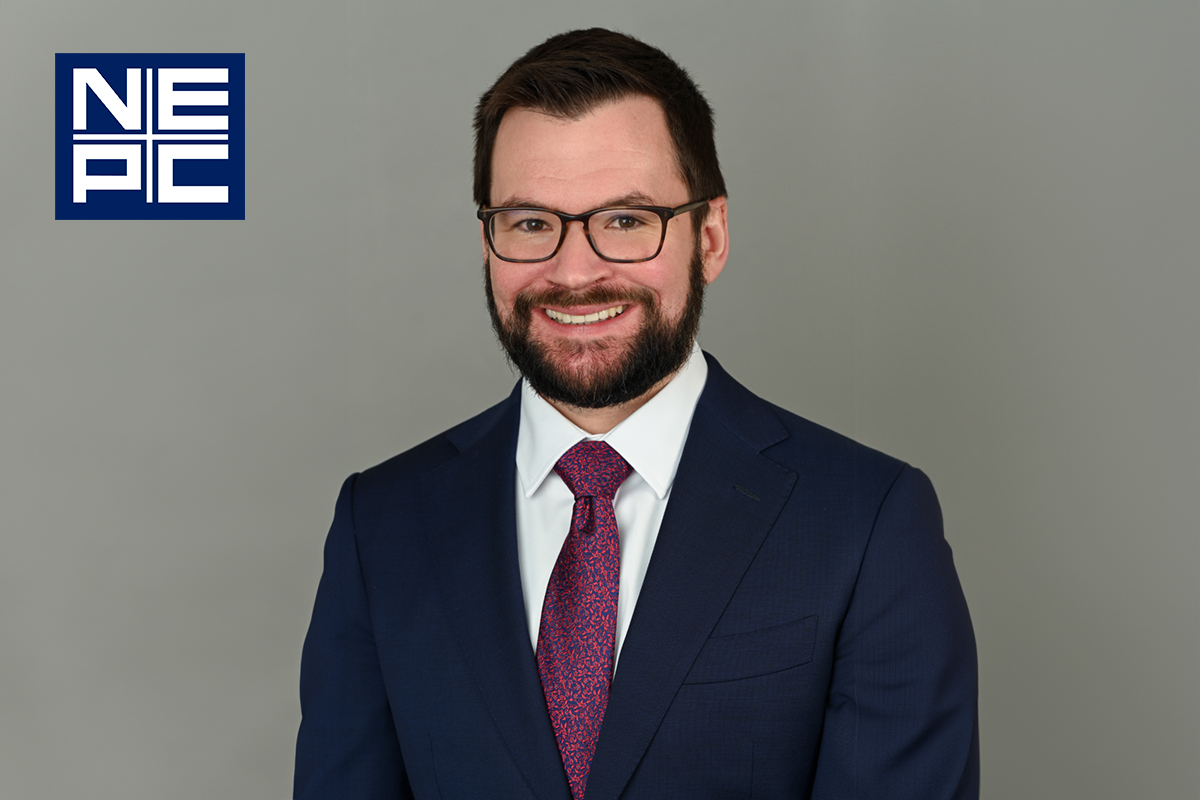Business Insider: 3 trades keeping investors in the green this year as the S&P 500 corrects
NEPC’s Head of Asset Allocation, Phill Nelson, was recently quoted in a Business Insider article to provide insights on the S&P 500 correction last week. View the full article on Business Insider site here.
- The S&P 500 has shed 4% since the beginning of the year as Big Tech stocks decline.
- However, previously unloved areas of the market like healthcare are rebounding.
- Gold and European stocks are also rallying.
Tariff volatility, mounting recession fears, and uncertainty around the AI trade have rocked markets this year — pushing the S&P 500 into correction territory last week.
But amid the stock-market sell-off, there are still pockets of outperformance.
“Anything with a more moderate valuation profile to start the year has done well,” Phillip Nelson, head of asset allocation at the investment consulting firm NEPC, said. “Areas less impacted by the headlines associated with tariffs seem to have weathered some of the uncertainty of the last several months.”
Pensions & Investments: Consolidation in the Retirement Industry Leads to Better Services and Greater Rivalry
NEPC’s CEO, Mike Manning, was recently quoted in a Pensions & Investments article to provide insights on the consolidation of DC plans and plan sponsors. View the full article on Pensions & Investments’ site here.
Consolidation of record keepers and other vendors to defined contribution retirement plans is a positive trend that leads to better services for participants, according to four speakers at Pensions & Investments’ Defined Contribution East conference March 10.
. . .
Mike Manning, managing partner at NEPC, and Bob Oros, chairman and CEO of wealth management firm Hightower Advisors, agreed, saying consolidation leads to a better customer experience, lower fees and better participant outcomes.
. . .
NEPC’s Manning said the trick is understanding how plan sponsors want to work with record keepers, advisers and other providers.
“It’s all about how that we can work with the data in such a way that it makes it easy for advisers to serve their customers,” Manning said.
Manning also urged plan sponsors to “put pressure on their record keepers to work with all the other folks in the ecosystem.”
Click here to read the full article on the Pensions & Investment site.
Pensions & Investments: Managed Account Offerings in Retirement Plans Shrink as Employers Wait for Better Deal – NEPC
NEPC’s DC Plan Trends and Fee Survey data was recently featured in a Pensions & Investments article which covers the decline in managed accounts in retirement plans, citing concerns about provider benefits over participants and advocating for participant-aligned, subscription-based pricing models. View the full article on Pensions & Investments’ site here.
The number of employers offering managed accounts in their workplace retirement savings plans has shrunk, according to NEPC’s “Defined Contribution Plan Trends and Fee Survey” released March 4.
. . .
“We believe managed account providers can and do construct efficient investment portfolios, but plan providers, as fiduciaries, should push for more improved outcomes for their plan participants through negotiating lower fees and seeking to better align the interests of the managed account providers with those of participants,” Mikaylee O’Connor, principal and head of defined contribution solutions at NEPC, said in the news release.
. . .
“By implementing a lower-based fee for less engaged participants, providers can offer an entry-level option, while more engaged participants could access expanded investment options through tiered subscription offerings,” O’Connor said.
O’Connor proposed a single-digit base fee for less engaged participants and a series of subscriptions for additional services and/or investment exposures for individuals who engage with the accounts and want the additional features.
Click here to read the full article on the Pensions & Investment site.
InvestmentNews: Managed Accounts Have Hit a Wall in DC Plans, Finds Survey
NEPC’s DC Plan Trends and Fee Survey data was recently featured in an InvestmentNews article which highlighted our findings on the increased demand for customized solutions in pension plans and the shift towards passive management in target-date funds. View the full article on InvestmentNews’ site here.
A new report from NEPC offers new insights in the workplace retirement savings space, particularly when it comes to the use of managed accounts and target-date solutions.
. . .
“We believe managed account providers can and do construct efficient investment portfolios, but plan providers, as fiduciaries, should push for improved outcomes for their plan participants through negotiating lower fees and seeking to better align the interests of the managed account providers with those of participants,” Mikaylee O’Connor, principal and head of defined contribution solutions at NEPC, said in a statement revealing the results.
. . .
To improve uptake among plan members, she suggested sponsors could offer a subscription-based model with lower base fees for less engaged participants, while providing more investment options for those more actively involved through tiered subscriptions.
“This approach allows for flexibility in costs and features, catering to diverse participant needs and engagement levels,” she said.
. . .
“Analyzing this year’s survey results through a long-term lens, we are excited by the ample opportunity for industry innovation, personalization, and increased accessibility in the defined contribution marketplace, especially across areas like alternative investments, managed accounts, TDFs, and retirement income solutions,” O’Connor said.
Click here to read the full article on the InvestmentNews site.
PlanSponsor: Fiduciary Risk Continues to Pose Barrier to Mass Adoption of Alts in DC Plans
NEPC Partner, Bill Ryan, was recently quoted in a PlanSponsor article to discuss how fiduciary risk, particularly the potential for litigation due to higher fees associated with private equity investments, continues to be a significant barrier for plan sponsors considering alternative investments in defined contribution plans. View the full article on PlanSponsor’s site here.
Many defined contribution plan sponsors have concerns about offering alternative investments in their 401(k) menu, but a supportive regulatory environment may shift the tide.
. . .
Bill Ryan, a partner in and defined contribution leader at NEPC, argues that the industry has already administratively solved for the issue of incorporating alts into DC plans. For example, he said Washington has, for the past five years, put private equity into the state’s DC plan through target-date funds, and the University of California Retirement Plan historically had private equity target allocation in a target-risk fund.
“Most large-cap active growth managers have less than 5% in a private placement or private equity in their mutual funds already, so private equity and private markets are in DC plans and are fully functioning,” Ryan says.
However, Ryan says there is an “asymmetric risk” to the fiduciary when offering any sort of alternative investment option because the reported fees tend to be the highest when the investment performs the best.
. . .
“It’s not that we can’t administratively deliver private markets,” Ryan says. “It’s these ancillary things that are hangnails that intimidate plan sponsors from doing it.”
Ryan emphasizes that higher fees are not necessarily a bad outcome for participants, but it can be risky for the plan sponsors because such fee disclosure often leads to litigation.
. . .
Overall, Ryan says private markets are in DC plans today, and more adoption is anticipated.
“Access is extremely important, especially with a very [pro-alternatives] administration, and we anticipate an uptick in flows and adoption, but it should be mindful, with the appropriate governance around it,” he says.
Click here to read the full article on the PlanSponsor site.
Forbes: Tough Markets, Smart Moves: How Investors Are Reallocating Capital
NEPC was mentioned in a recent Forbes article to highlight Sarah Samuels’ warning about continued valuation declines in private equity and venture capital, along with concerns over mounting liquidity pressures. View excerpts below or read the full article on the Forbes site here.
“In a time of rising market uncertainty, sophisticated investors are making strategic shifts in their portfolio allocations to navigate an evolving investment landscape. After two years of double-digit outperformance in public equities, it is not surprising that investors are looking to increase their exposure to private markets, seeking diversification and perceived stability. However, this trend is not without risks, as private market valuations can create an illusion of security in an environment where liquidity constraints may be mounting.”
. . .
“Additionally, consulting firms like NEPC have warned investors about potential valuation declines in private equity and venture capital. Many firms have avoided markdowns by opting for insider rounds and bridge financing to maintain valuations, but mounting liquidity pressures remain a concern.”
Infrastructure Investor: ‘It’s Really Important Investors are Aware of the Profile’, LP Consultant Warns
NEPC’s Matt Ritter was recently featured in an Infrastructure Investor article discussing how he is not against funds that are ‘more private equity-like’, as long as LPs understand the risk. View excerpts below or read the full article on the Infrastructure Investor site here.
Investors in the infrastructure space need to be aware of the risks of the asset class as they look to meet the tailwinds of the energy transition and digital infrastructure, Matthew Ritter, partner and head of real assets at US-based LP consultant NEPC, told Infrastructure Investor.
. . .
“I think there’s really attractive opportunities for investing in infrastructure today across the board, particularly in some of these themes, ” he said. “At the same time though, I think it’s really important that investors be aware of the risk profile of what they’re investing in.
“There are strategies that are much more at the secure end of the spectrum with long-term contracted cashflows with credit counterparties, and then there’s strategies that are a little bit more private equity-like. I think there are attractive opportunities across that spectrum, but it’s important to make sure that you understand what you’re investing in and that it aligns with your goals and objectives.”
. . .
“As these themes have garnered a lot of interest, there’s been a lot of new entrants or managers launching new strategies to capitalise on these themes, ” Ritter outlined. “Some of which may call themselves infrastructure, but might actually look more like a private equity strategy in terms of the underlying risk and return profile.
“So, while total return is something we are mindful of, of course we want to be thinking about the risk that you’re taking. Is a strategy really taking on commercialisation or technology risk in a way that is not suitable for an infrastructure portfolio? Those are things we’re thinking about as well.”
. . .
“A lot of commitments were made last year, but there is definitely a subset of investors that, just by their exposure through other private markets – whether it’s real estate, private equity or other areas – there’s been decreased liquidity in the market and therefore they’re getting fewer dollars back, ” he reasoned. “That has certainly constrained their ability to make new investments to some degree.”
Click here to read the full article on the Infrastructure Investor site.
Institutional Investor: NEPC’s Sarah Samuels Expects ‘More Pain to Come’ in PE, VC
NEPC’s Sarah Samuels was recently featured in an Institutional Investor article discussing the challenges in private equity and venture capital, predicting more struggles ahead due to falling valuations and investors becoming more cautious. View excerpts below or read the full article on the Institutional Investor site here.
Private equity has been tested in recent years: Investors earned strong returns on stocks while PE struggled and alternative managers and investors couldn’t even agree on valuations. All of this has prompted a flight to safety, with investors committing most of their capital to the largest, brand name funds last year.
. . .
“I believe there’s more pain to come in venture capital marks,” Samuels told Institutional Investor.
. . .
“There’s a lot of goodwill that’s been destroyed between GPs and LPs,” Samuels said before adding, “I’m a little worried about some of the dollars in the ground today for further down marks.”
. . .
Within buyouts, NEPC isn’t seeing deals happen fast enough due to “an impasse between buyers and sellers.”
“They don’t want to meet on price,” she said. “The sellers don’t want to come down, the buyers don’t want to come up further.” Samuels added that the IPO market is open, but private companies need to be properly priced before going public.
Click here to read the full article on the Institutional Investor site.
PlanSponsor: Lower Managed Account Fees Would Likely Increase Plan Sponsor Adoption
NEPC’s white paper, “Reimagining Managed Accounts for Defined Contribution,” was recently featured in a PlanSponsor article, which highlighted NEPC’s findings that high fees on managed accounts can diminish their value, and fees above 30 basis points may necessitate higher risk to achieve returns comparable to more affordable alternatives like target-date funds. View the full article on PlanSponsor’s site here.
While defined contribution retirement plan sponsors have increasingly showed interest in offering more personalized retirement investments to their participants, widespread access to managed accounts has yet to be achieved.
. . .
“However, a recent NEPC paper found that high fees tend to erode the value of managed accounts, as a fee of 30 basis points typically requires a participant to increase their equity exposure by 20% to 30%, or by two to three TDF vintages, to achieve a similar net-of-fee return. In addition, for participants paying a lower fee of 15 basis points, for example, NEPC argued that they could anticipate returns comparable to a typical TDF investor. Even with the advice component of managed accounts, NEPC found that the added value of that feature declined over time.”
Click here to read the full article on the PlanSponsor site.
Pensions & Investments: Surging Markets Provide Huge Boost for Largest U.S. Retirement Plans
Aaron Chastain of NEPC was recently quoted in a Pensions & Investments article, where he discussed how investors are increasingly embracing private credit and global equity strategies to diversify their portfolios, mitigate risk, and pursue higher returns in light of current market conditions and uncertainty. View excerpts below or read the full article on the Pensions & Investments site here.
U.S. retirement plans in Pensions & Investments’ latest annual survey reported their strongest gains in three years, even as the portfolio payoff from diversification hit an air pocket and persistent equity market dominance by a handful of U.S. tech giants continued to dog investment teams.
. . .
Aaron Chastain, an Atlanta-based principal and corporate solutions leader with NEPC, said the steady appeal of private credit likely reflects its relatively attractive balance of risk and returns. “A lot of particularly large plan sponsors … still have return needs for their growth portfolio but are wanting to incrementally derisk as they get better funded. I think we’re seeing a little bit more focus on private credit as that middle ground,” offering high returns with both superior safety and shorter duration than something like private equity, he said.
. . .
NEPC’s Chastain said that urge to diversify away from an overconcentrated S&P 500 index has led clients to seek out more active strategies with less reliance on the Mag Seven, including global equity strategies offering broader opportunities to seek alpha.
. . .
Chastain said with credit spreads over Treasuries narrowing last year, some investors have concluded that they’re no longer getting paid to hold credit. Switching into passive Treasuries leaves them positioned more cautiously to lean into credit again in the event of market dislocations.
Policy uncertainty, asteroid mining and satellites.
Click here to read the full article on the Pensions & Investments site.









